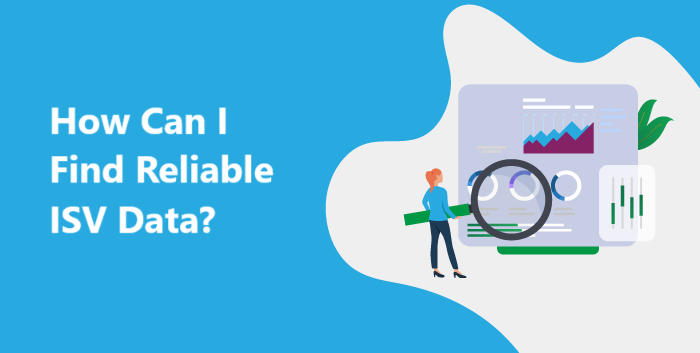I never cease to be amazed at how social media has changed human interaction. People online behave so differently from how they would in person — and gosh can they be mean! Shaming, criticizing, teasing, and judging seem to have become the norm and while sometimes it can be constructive, most of the time it’s not. Behavioral psychologists believe that this phenomenon derives itself from the fact that because social media is an indirect form of communication (I don’t have to confront another person face-to-face but can hide behind an anonymous identity), people feel “freer” to express their true thoughts and feelings (no matter how bad). While I certainly can understand this to an extent, I also find it sad that so many people are negative and feel compelled to share those critiques rather than continue scrolling along. Whatever happened to the age old adage, “If you don’t have anything nice to say, don’t say anything at all?”
As a business, social media in the B2B space for software vendors may feel like opening Pandora’s Box. But at the same time, it is a necessary evil in some respects — so much business is done online through social selling that having a presence on social media channels has become a must, both for individuals and companies alike, as people (and companies) follow the pages of their clients and suppliers. Don’t forget that social media has become an important source of information; according to the Pew Research Center, it is estimated that on average, nearly two-thirds of people use social media as their principal source of news.
So what’s the best way to handle the pitfalls? Here are our top 5 tips to avoid social media traps:
Never respond without thinking
One of the worst things you can do to your reputation as a business is to respond to a negative post when you’re in the heat of the moment. While it’s very tempting to immediately counter-argue an attack, don’t let your emotions get the best of you — take the time to craft a well-thought-out response that’s a positive reply to the negative criticism you received. Even if you don’t at all agree with the opinion of the poster, other readers are paying attention to how you handle yourself. In this respect, social media management is a lot like public relations (especially when it comes to crisis management). If you aren’t careful, you may find yourself in an online argument (visible for everyone to see), and worse yet, it can become a viral one. People demand that the companies they do business with treat them with the utmost of respect. While it’s true that the client may not always be right, you still need to treat them with the highest level of professionalism.
Admit when you’re wrong
There’s nothing worse than seeing someone “fight to the death” on social media. Listen — when you’re wrong, you’re wrong. People can forgive and forget, but they won’t tolerate an asshole (excuse my French). It’s much nicer to read, “Thanks for the insight. This has given us some food for thought,” than trying to have the last word.
I’ll give you a concrete example to illustrate my point. I was following a business on Facebook who sold organic food products (ok, yes this is a B2C example, but bear with me).
They posted that they were selling fresh, in-season fruits and vegetables at a certain price and that anyone could place an order for delivery. Someone commented, “Too expensive!”, but instead of having a rational conversation, bringing up key arguments, such as “Our prices may seem higher than some supermarket chains but in fact our locally grown organic products are of higher quality…blah, blah, blah”, the company effectively insulted the intelligence of the poster, telling them that they were wrong and in fact their prices weren’t expensive at all. This lead to an online argument (with multiple people jumping in on both sides), but in the end you know what happened? The business suffered. They were seen as insensitive and not caring about the concerns of their customers. This type of situation could have been avoided had the company had the common sense to think about the bigger picture and focus on their key marketing messages in their response. The same goes for any business. Be human. Be kind. Is there a hashtag for that?
Don’t claim to be an expert if you’re not
These days everyone’s an expert on everything. But actually, this couldn’t be further from the truth. While people claim to be experts, most are far from it. If you have a niche focus that’s your “claim to fame,” go for it. Be the thought leader you were meant to be in your industry. Otherwise, back off. It’s not a good idea to pretend like you know everything (especially on social media) because not only will other people see right through it, they’ll call you out on it.
Block the spammers
Unfortunately, there are some trolls out there who are going to try to pollute what you have created by posting spam comments. I kind of equate this with trying to have a conversation with a drunk, homeless person. You just can’t. Block them, report them and try to get rid of them as fast as you can. There’s no reasoning with these people so don’t bother.
Be yourself
Your company has a unique identity. It’s important that shows in your communications. Whether you are re-posting content, responding to comments or promoting original company assets, demonstrate what your company stands for and believes in. Not only is this good for business, it’s great for recruitment purposes as well.
Conclusion
Social media management isn’t always easy. It can be a dirty business, and end up harming your company’s brand reputation if you’re not careful. Doing it yourself may not always be the best idea, so consult an expert to develop a strategy that’s adapted to your needs and goals. Daily presence isn’t always required — it’s not quantity that’s important but quality.








